Innovative approaches such as land restoration and private-public partnerships, as well as revisiting tried approaches such as herd grazing and indigenous land management, offer partial answers to the challenges of a changing climate in WNC forests.
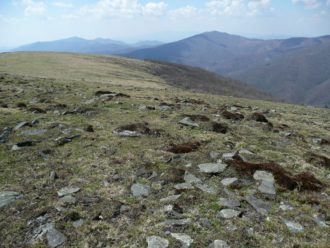

Innovative approaches such as land restoration and private-public partnerships, as well as revisiting tried approaches such as herd grazing and indigenous land management, offer partial answers to the challenges of a changing climate in WNC forests.
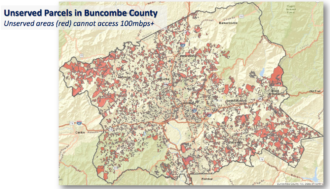
The two rural areas in the county’s northwest and southeast emerged as the biggest pockets of need after an extensive analysis by county staff of high-speed internet availability. A contract with an internet provider to expand service could go before the Board of Commissioners in July.

“She has worked tirelessly for our Sandy Mush community, helping to bring sorely needed access to high-speed internet to our rural valley and to honor and promote our agricultural heritage.”
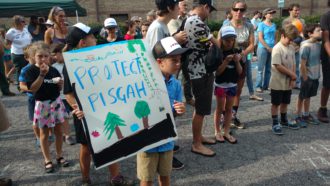
Western North Carolina’s wild places and creatures lie at the heart of the region’s appeal, inspiring local artists and attracting visitors from across the globe. Events in 2018 promised to shape the future of those natural resources for years to come.
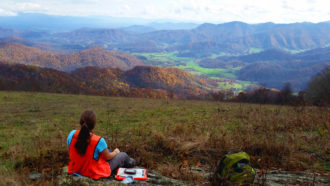
When invasive plants reach into productive “rich coves” like Sandy Mush, they can choke out much of the region’s native biodiversity. Endangered and sought-after plants such as yellow mandarin, black cohosh and wild ginseng, as well as thousands of other species of native plants and animals, can be at risk.

“I believe that Brian Turner will continue to work hard for us.”

“Our recently launched Farm Heritage Trail is an innovative agritourism initiative that includes a year-round scenic farm trail, seasonal farm stops and an ongoing calendar of farm events including farm-to-table dinners, hikes, educational opportunities and more.”
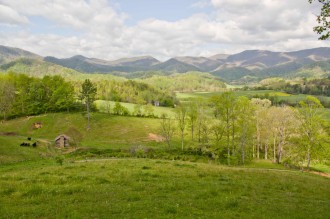
Out-of-towners who flock to Asheville for mountain views, world-class dining and a taste of Appalachian culture probably don’t often make a point of including a drive to northwest Buncombe County on their travel itineraries. Sparsely populated rural communities like Sandy Mush, Leicester, Newfound and Alexander tend to be pretty far off the radar for tourists — and even for […]
Coordinated by the local YWCA, this year’s Stand Against Racism events involve 100 different organizations from across the community. Below is a calendar of major events. Look for the full story in the April 27 issue of Xpress. Additional groups that wish to become involved in the events can still register until April 22. For […]
Proposed legislation promoting 200 new U.S. nuclear reactors is foolhardy. Construction costs will continue to escalate, exceeding $10 billion each before any could be operational 10 years hence; $2 trillion for completion would become the largest energy boondoggle in U.S. history. Furthermore, despite claims it's "clean,” dirty fossil fuel is expended, deadly radioactive waste created […]
Local photographer Jerry Nelson joined a recent SouthWings flight over Western North Carolina and took this shot of the Sandy Mush community in Buncombe County. The area was suggested as a possible repository for nuclear waste 30 years ago, and more recently, with the recent closure of Yucca Mountain out west, some local residents are asking, “Is Sandy Mush back on the table for discussion?”
Your recent coverage of the Savannah River Site and Sandy Mush is one-sided, and doesn't seem to have been fact-checked [“Local Matters Special Edition: Talking nuclear with Ned Ryan Doyle and Jerry Nelson,” an online-only feature, Jan. 20, www.mountainx.com]. There is no plan to consider Sandy Mush as a waste repository site, which is a […]
Coming in on the heels of the story “Hidden Hazards” in the Jan. 12 Mountain Xpress, an old fight is re-presenting itself in our community. It’s not hidden, and reminds me that what we don’t know can kill us. The prospect is not only for a neighborhood nuclear-waste dump but, at the very least, what […]

In the 1980s, U.S. officials considered storing nuclear waste in Sandy Mush just outside of Asheville. Residents fought the proposal, and it was tabled — but not forgotten. On Jan. 7, a busload of area residents met before dawn in Asheville; with the aim, in part, of making sure Sandy Mush didn’t crop up again as an option, they headed to Augusta, Ga., for a meeting of the Blue Ribbon Commission on America’s Nuclear Future. Xpress talked with two folks who took the trip that day — alternative-energy advocate Ned Doyle and photographer Jerry Nelson.
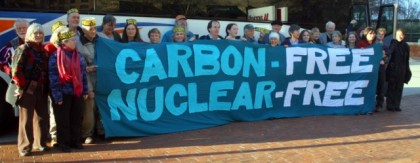
photo by Jerry Nelson